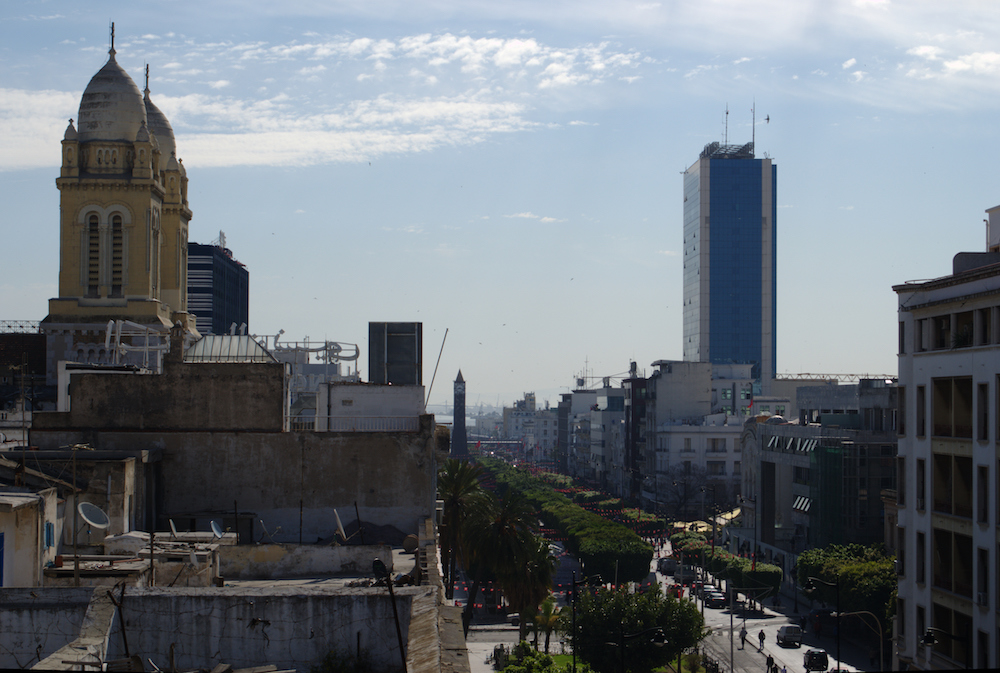Morgan Stanley already warned, four months ago, that Tunisia was heading for a default, unless a financing agreement is concluded very soon with the IMF. The American bank maintains this warning, with regard to certain indicators.
With “a budget deficit of almost 10%, one of the highest public sector wage bills in the world”, Tunisia is the African country most at risk of defaulting on its debt, warns the American bank Morgan Stanley in a recent report.
“Africa has a group of countries that are going to the International Monetary Fund (IMF), but Tunisia seems to be one of the most at risk,” continues the American bank. In the event of Tunisia’s default in payment, the State would no longer be able to pay, on time, what it owes to its creditors, whether it be borrowed capital or interest.
“Tunisian bond spreads, i.e. the premium investors demand to buy debt rather than US bonds, have increased to over 2,800 basis points and, along with Ukraine and El Salvador, Tunisia is on the list of the top three likely defaulters,” said Morgan Stanley.
Under these conditions, “an agreement with the IMF becomes imperative”, adds the American bank which nevertheless fears that this agreement with the Bretton Woods institution will be “difficult to obtain” because of “the efforts of Tunisian President Kaïs Saïed to strengthen his power “.
Last March, the bank already indicated that Tunisia would be heading for a payment default, if the current deterioration of its finances continued. “In a scenario where the current rate of fiscal deterioration continues, Tunisia is likely to default on its debt next year unless it secures a quick program with the IMF and proceeds with major spending cuts.

Following the American bank, the credit rating agency Fitch had also lowered Tunisia’s sovereign rating from “B-” to “CCC”, estimating that a public deficit of 8.5% of GDP this year would push its debt-to-GDP ratio to 84%.
However, official negotiations around a new financing program started in early July between Tunisia and the IMF. The amount of funding that the Bretton Wood institution will provide remains unknown. Already at the end of June, after several months of technical discussions with the Tunisian authorities, the IMF said it was ready to start negotiations on the implementation of a financing program provided that the country puts in place a certain number of reforms and measures.
“Tunisia must urgently address the imbalances in its public finances by limiting the growth of the large civil service wage bill, replacing generalized subsidies with transfers to the poorest, reforming public enterprises that are losing money, by opening the economy to private sector investment,” said Jihad Azour, director of the IMF’s Middle East and Central Asia department, during a trip to Tunisia on June 20 and 21.
In its Tunisia indicators and economic situation for the month of April 2022, the French Treasury management indicated “that Tunisia’s debt trajectory is now unsustainable without reforms. Public debt rose from 74.2% of GDP in 2019 to 89.7% in 2020, and is expected to reach 90.2% in 2021 […] Tunisia is facing very great difficulties in borrowing and financing its needs. Social deterioration continued with an unemployment rate reaching 18.4% of the active population, the highest unemployment rate observed since 2011”.
Apart from Tunisia, Kenya, Egypt and Ghana are the other African countries “most vulnerable due to the amount of their future debts compared to the reserves and budgetary challenges in terms of stabilization of the debt burden”. . Egypt for example has a debt to GDP ratio of almost 95%. The country has $100 billion in hard currency debt to repay over the next five years, including a large $3.3 billion obligation in 2024.
Despite this, the country “should be able to pay”, believe several analysts.








Réagissez à cet article